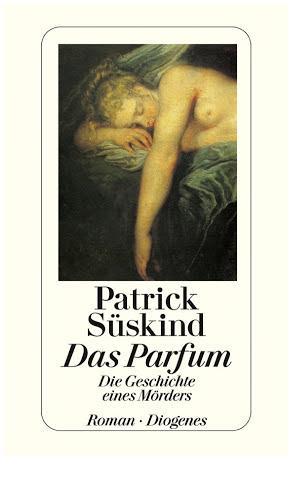Perfume, by Patrick Suskind, is a richly imagined tale with interesting symbolism. It centers around Jean-Baptiste Grenouille, who is born with a nose more keen than that of any canine. He is also born in the very worst poverty and circumstances in 18th century Paris, France, where his childhood is marked by the complete absence of any kind love, compassion, or connection with other people. In fact, people tend to either avoid him or simply overlook him. When he is an infant, the church pays a village woman to nurse and care for him, but she begins to find Grenouille repugnant (she is the first to articulate why), and dumps him back on the church. Then another woman takes him for some years, but after discovering Grenouille's unusual talent, she finds him so creepy that she cannot sell him off quickly enough. So, he becomes the property of a tanner, performing hard, physical labor, but this neglected child suffers without complaint. He is unfortunately ugly and has trouble speaking, in part because his extraordinary olfactory prowess renders words insufficient. He is thought to be quite dull, but he is actually paying very close attention to his surroundings, and one night, when he is out walking around Paris, is senses and odor unlike anything else, and is so enraptured that he tracks it down. The odor is coming from a teenage girl, and he sneaks up to her and on an impulse, strangles her. He sniffs deeply at her lifeless form until he has this aroma filed in his brain forever. After this event, Grenoiulle's mission in life is to recreate that aroma, his first enchanting experience.
I won't spill the whole plot, but Grenouille becomes a perfumer's apprentice and eventually travels to Grasse. Along the way, he discovers something about himself: he does not have a scent. He can smell everyone else and every single object around him, but he cannot perceive his own odor. This discovery disturbs him very much, and so he invents a perfume for himself, so that people will notice him, and regard him as one of them. Actually, he experiments with many odors, which will serve as disguises, later on.
Grenouille is a natural genius at creating wonderful perfumes, but he cares little for that. What he wants is to create a fragrance that will inspire love, the kind of love and awe he felt when he smelled his first victim. The young women of Grasse are now in serious danger.
This novel is told in third person, and Grenouille is the only character who is well-developed. This works well, since he is so detached from people, living a sensual life well outside the normal realm. The events, especially the ending, read like a folktale, most certainly outside the realm of possibility. I enjoyed it, though of course it's quite sad. I take Grenouille's lack of odor, and the effect that this fact has on him, as his realization that he does not know who he is, nor does he feel apart of anything. And his indifference to money and creature comforts in pursuit of this fragrance is his desire for love and personal worth. However, his actions are those of a sociopath, he has delusions of grandeur, and has no concept of what loves means to people.
Patrick Suskind has created a most interesting character in John-Baptiste Grenouille, and I found the novel well-written, engaging, and enjoyable.


